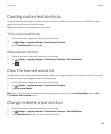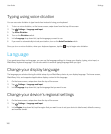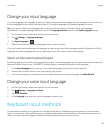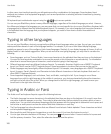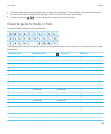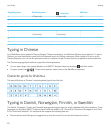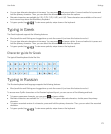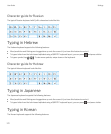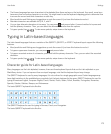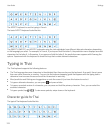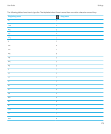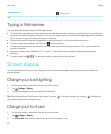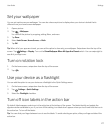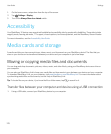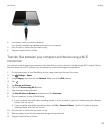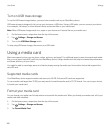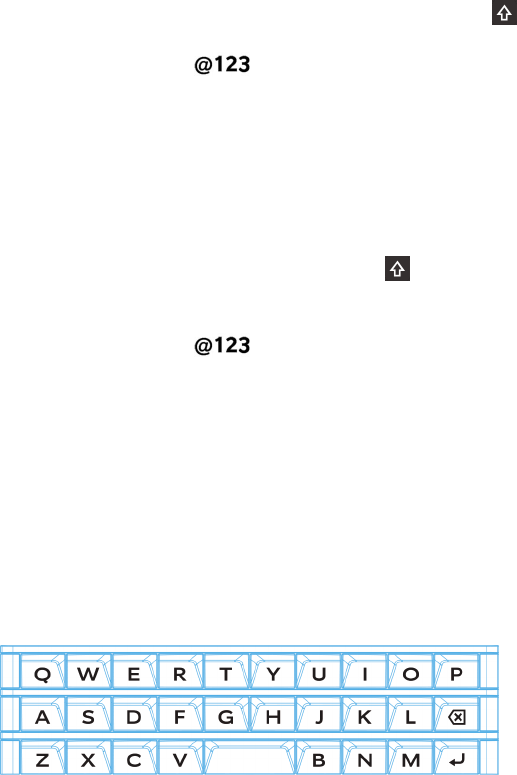
• The Korean language has more characters in the alphabet than there are keys on the keyboard. As a result, some keys
have more than one native character on one key. You might need to use the keyboard mapping guide to determine how
to access the second and third characters on each key.
• Word prediction and flicking word suggestions up onto the screen (if you have this feature turned on).
• Alternate characters are available for Q, W, E, and R.
•
You can type alternate characters in two ways. You can press and press a letter. A second method is to press and
hold the primary character. Then, you can select the alternate character from the options.
•
To type a symbol, tap . To view more symbols, swipe down on the keyboard.
Typing in Latin-based languages
The Latin-based languages that use a variation of the QWERTY, QWERTZ, or AZERTY keyboard layout support the following
features:
• Word prediction and flicking word suggestions up onto the screen (if you have this feature turned on).
•
To type an uppercase character, you can press and press a letter.
• To type an accented version of a character, press and hold the primary character. Then, you can select the accented
character.
•
To type a symbol, tap . To view more symbols, swipe down on the keyboard.
Character guide for Latin-based languages
Many languages use the Latin alphabet; however, there are three keyboard layouts that use the Latin alphabet on your
BlackBerry device. If you set up more than one input language, note that the keyboard layout may change.
The QWERTY keyboard is used by many languages; it's not confined to a single geographic area. Certain languages may
have slight variations to the available keys or symbols, but the basic keyboard is the same. QWERTY keyboard is used for
typing in American English, European English, Czech, Danish, Dutch, Italian, Polish, Brazilian, Portuguese, Romanian,
Spanish, Catalan, Galician, Basque, and Vietnamese.
The basic QWERTY keyboard looks like this:
The QWERTZ keyboard is used for typing in German, Czech, and Hungarian.
The basic QWERTZ keyboard looks like this:
User Guide Settings
173



